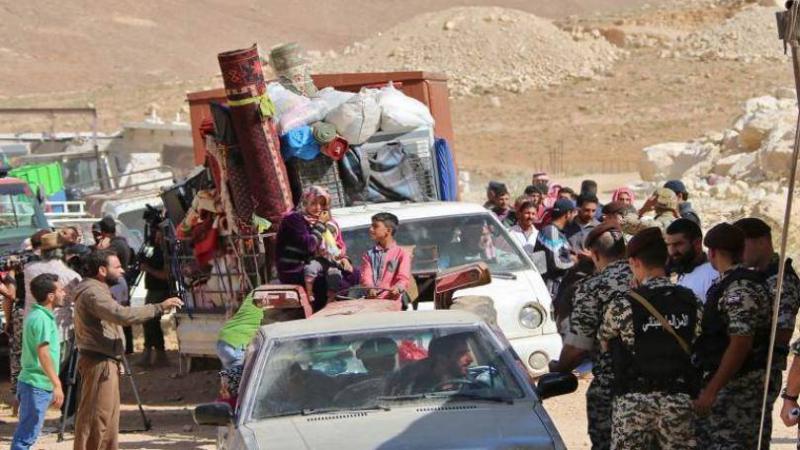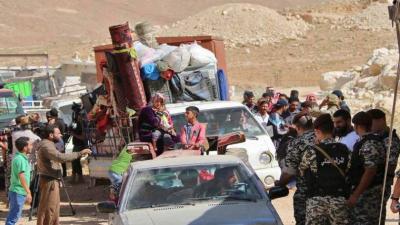The Minister of Foreign Affairs and Emigrants, Dr. Abdullah Bou Habib, participated in the "Supporting the Future of Syria and the Region" conference, held in Brussels during its sixth session. In his remarks, Bou Habib thanked the organizers for holding the conference "in this difficult situation," hoping that "the international community will commit to continuing its support for Syrian refugees and the host countries."
He pointed out that "the government of President Najib Mikati was formed in five weeks and succeeded in achieving six main goals:
- Agreement with the International Monetary Fund, which has been accomplished.
- Elections, where expatriate elections took place successfully, and resident elections are scheduled for this week.
- Repairing relations with Gulf countries, aided by Kuwait and its Foreign Minister, Sheikh Ahmad Al-Sabah.
- Restoring security and stability, achieved through the efforts of the Lebanese Army, Internal Security Forces, and General Security.
- Fighting corruption.
- Addressing the electricity file, which is underway and may advance if resources are available."
He stated that these goals have been largely achieved despite the political issues that caused a three-month halt in government meetings, establishing a solid foundation for the new government as the current government term ends on May 21, noting that initiatives require financial resources while the international community continues to impose conditions for aid.
He added: "Lebanon has transformed from a middle-income country to a low-income country for the following reasons: the financial and monetary policy adopted since the 1990s has proven catastrophic, with a fixed exchange rate and high interest rates, leading to financial deficits despite warnings from the International Monetary Fund. The Syrian war, which began in 2011, closed Lebanon's window to the east and, with the closure of land borders, Lebanon incurred significant financial and economic losses and welcomed waves of Syrian refugees seeking safety and economic opportunities."
He continued: "Currently, there are about 1.5 million Syrian refugees in Lebanon and slightly less than half a million Palestinian refugees, accounting for about 50% of the Lebanese population or one-third of the Lebanese residents."
He added: "The international community has shown generosity in assisting refugees and host countries, which is appreciated by the Lebanese, but the costs to Lebanon have been extremely high. There is a study conducted by an international organization indicating that the costs of displacement on Lebanon have reached about $3 billion annually, totaling $33 billion over 11 years. Additionally, there has been an increase in unemployment, a deterioration of infrastructure, and rising crime rates, with more than a third of prisoners in Lebanese jails being Syrian, and the number of Syrian children born in Lebanon exceeding that of Lebanese children. Furthermore, the presence of Syrian refugees has disrupted the demographic balance in Lebanon, with more than 75% of Lebanese living below the poverty line, according to the study."
Minister Bou Habib stated: "Most Syrian refugees are not political refugees but economic ones, and the current economic and security situation in Syria is better than in Lebanon. Recent amnesty decrees have been issued for those who fled and for most who left during the war, and there is readiness through negotiations to resolve the issue of those who remained in Syria." He noted that "many Syrian refugees regularly visit their villages and voted in the Syrian presidential elections at the Syrian embassy in Lebanon, where they go for their transactions, and almost all of them send money to their relatives, so the money provided to them in Lebanon eventually returns to Syria in one way or another."
He warned that "donors are creating a 'new UNRWA' for the Syrian refugees at a time when we see 'donor fatigue,' with aid to UNRWA decreasing and gradually the assistance to Syrians will decline too."
He emphasized an important issue for the Lebanese government, which is that there is no ability to wait for a political solution in Syria and that Lebanon does not have the resources to prevent people in boats from leaving its shores. "Two weeks ago, a ship sank carrying over 84 people, and more than half of them were rescued."
He indicated that "some international and civil organizations do not respect government institutions and operate on the ground without coordinating or informing the government, which is not practiced in any country in the world, but they visit officials to obtain tax exemptions or diplomatic plates for their vehicles."
He concluded: "In the end, Lebanon cannot bear this burden for much longer, and donors must listen carefully to Lebanese concerns and change the way they deal with the issue of Syrian refugees, possibly providing them assistance in Syria. In the past, Lebanon was able to facilitate the return of hundreds of thousands of Syrians to their country, but we see them returning to Lebanon to receive monthly aid from donor organizations."
He finished by saying: "Lebanon remains against the use of force to return Syrian refugees to their country and supports safe and dignified return; the current situation cannot be sustained."




